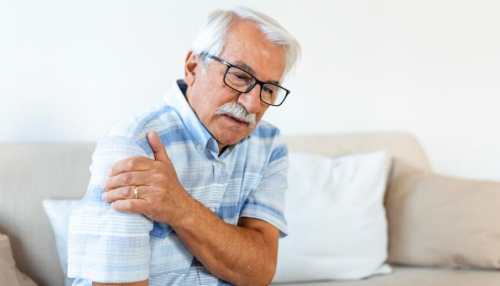- News>
- Health
Arthritis Management: How To Get Relief From Pain - Key Strategies To Use In Everyday Life

Arthritis is a widespread condition characterised by joint inflammation and reduced mobility. It includes various types such as osteoarthritis and rheumatoid arthritis, each with distinct symptoms.
Highlights
- Exercise is crucial for preserving joint suppleness and lowering arthritis-related stiffness
- While cold therapy lowers inflammation and numbs the area, applying heat helps relax muscles and promote blood flow
- Dietary supplements may be able to assist some people manage their arthritic symptoms
Arthritis is extremely common, especially in people above 50, and it's caused when there is inflammation of one or more joints, leading to pain and stiffness that can worsen with age. Sharing his insights on the matter, Dr Amyn Rajani, Chief Surgeon and Director at OAKS Clinic, Consultant Knee, Hip and Shoulder Surgeon at Breach Candy Hospital, Saifee Hospital & Lilavati Hospital and Research Centre, shares, "Arthritis is a widespread condition characterised by joint inflammation and reduced mobility, including various types such as osteoarthritis and rheumatoid arthritis, each with distinct symptoms."
The doctor says that due to several social factors, he has seen a notable increase in osteoarthritis incidence in the last three decades. "The number of affected individuals increased from 256 million in 1990 to 595 million in 2020, a 132% rise," says Dr Rajani. The doctor points out that the condition is manageable and some techniques need to be followed to provide relief in this condition.
How To Manage Arthritis Pain
Dr Amyn Rajani shares the following tips to manage arthritis pain:
Medications: Medications play a vital role in managing arthritis pain. Over-the-counter pain relievers or nonsteroidal anti-inflammatory drugs (NSAIDs) can help manage mild to moderate arthritis pain. Prescription medications or disease-modifying antirheumatic drugs (DMARDs) are prescribed for severe cases.
Exercise And Physical Therapy: Exercise is crucial for preserving joint suppleness and lowering arthritis-related stiffness. Walking, cycling, and swimming are low-impact exercises that are easy on the joints and can help control discomfort. Additionally, individualised exercises and physical therapy can lessen discomfort and develop strength, and improve joint function. Alternative treatments for arthritis, including massage or acupuncture, can also provide relief.
Also Read: International Women's Day 2024: How Ayurveda Can Help Manage Polycystic Ovarian Syndrome - 4 Tips
Hot And Cold Therapy: These help ease arthritic discomfort momentarily. While cold therapy lowers inflammation and numbs the area, applying heat helps relax muscles and promote blood flow. Joint tension during regular activities can be lessened by wearing supportive footwear, utilising joint braces.
Dietary Supplements: Dietary supplements may be able to assist some people manage their arthritic symptoms.
Surgery: If the condition continues to worsen, the wear and tear on the knee, hip and shoulders can be healed to provide mobility to the patient by Partial Knee Replacement or Total Knee Replacement, Total Hip Replacement, Shoulder Replacement by a qualified surgeon.
"Lifestyle modifications, combined with medicine, can greatly reduce arthritis symptoms. It is crucial to collaborate closely with medical specialists to create a customised treatment plan that meets individual patient's needs," says Dr Rajani.
